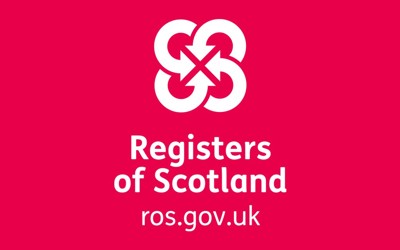Property Law Committee update
Our Property Law Committee comprises 15 practising solicitor members who work together to consider aspects of conveyancing law and practice to benefit our members. The Committee deal with a varied range of topics and are aware of the ongoing challenges that property solicitors face in practice. They are keen to highlight some of their recent work and other matters that property solicitors should be aware of.
Third party requests for AML
Following the introduction of the Money Laundering etc Regulations 2017, there has been a practice of non solicitor estate agents requesting identification documents from solicitors acting for purchasers on receipt of a successful offer. An article in the March 2018 edition of the Journal, entitled 'When estate agents need client ID' outlines our position.
It has been reported to the committee that there is now an emerging trend where solicitors are being asked to provide further details and to complete information forms to accompany the request for identification documents. The committee’s view is that the information requested on such forms goes beyond requesting identification documents and solicitors should not be expected to provide the information requested. However, if a solicitor is minded to provide such information they should seek their clients' instructions before doing so.
Review of Conveyancing Guidance
The committee is undertaking a wholesale review of its current conveyancing guidance.
In particular, it understands that questions have been raised about the committee's current guidance on environmental and/or contaminated land matters. Specifically, it has been suggested that members should be ordering contaminated land reports in conveyancing transactions in Scotland, in line with practice south of the border.
At present, the committee has decided that it is not appropriate to change the current guidance which says that if a solicitor does not feel qualified to comment on environmental matters, whether in general and/or in particular in regard to contaminated land matters, then, whatever the nature of the property in the transaction (including both residential and commercial property), that solicitor is entitled to seek to exclude liability for environmental law matters and/or contaminated land matters - provided that exclusion of indemnity is made clear in the initial terms of business issued to the client with respect to the transaction in question.
Discharge of discounted standard securities
It was brought to the committee’s attention recently that on expiry of a Discounted Standard Security a local authority had written to the original purchasing solicitor advising that if they required a Discharge of a Discounted Standard Security then the local authority would charge a fee of £100.
It should be noted that there is no requirement for a Discharge of a Discounted Standard Security to be registered following expiry of the three year discount period and that the Keeper will remove the Discounted Standard Security on the next application for registration affecting the secured property. Despite this, the committee understands that some firms, when acting in remortgage transactions, insist on the local authority providing a discharge.
Given that there is no legal requirement for a discharge, at least one local authority that we are aware of, has taken a policy decision to charge a fee if a discharge is insisted upon. It is a matter for the proprietor (and their solicitor’s professional judgement) whether or not they request a discharge.
Letters of Obligation and Master Policy cover for practice year 2019/2020
The vast majority of conveyancing transactions are settled using an Advance Notice but sometimes it may be appropriate to use a letter of obligation (e.g. for the grant of a lease which is not a long lease). For the insurance year Nov 2019 to Oct 2020, there will be no change to the Master Policy regarding the grant of letters of obligation. The position will be reviewed at renewal of the Master Policy in 2020.
Ongoing engagement with stakeholders
The committee enjoy ongoing engagement with Registers of Scotland. Members of the committee also engage with UK Finance, Revenue Scotland, Legal Marketing Services, National House Building Council and Homes for Scotland to discuss matters that effect the profession.
Plans reports
The committee has received anecdotal evidence from Registers of Scotland that plans reports are not ordered as often as perhaps they should be, for example, intra-family transactions.
If you are unsure about when a plans report is required or what level of plans report to order, please refer to Registers of Scotland's guidance on plans reports.
Registers of Scotland - Expedite
As a measure to tackle and alleviate the effect of the registration arrear, the Keeper introduced an expedited registration service in October 2018 for applications which had taken longer to complete than Registers of Scotland's published service standards. In March this year, the service was extended to all applications (i.e. whether or not the application falls within those service standards).
Registers of Scotland recognise that that there will be circumstances where registration requires to be completed more quickly than usual and in those circumstances, practitioners can request expedited registration when certain criteria apply.
Applications are considered on a case by case basis. Registers of Scotland will only consider expedite requests that meet their assessment criteria and can be supported by evidence. The criteria are that the delay to registration could result in financial or personal loss or hardship or loss of future transactions.
In addition to the expedite process the Keeper has committed to not reject applications (unless legally impossible to register) that have been with Registers of Scotland for longer than 90 days.
Certificates of Title for Home Improvement Loans and Equity Release Loans etc
The committee recently had sight of a style Certificate of Title (COT) for use in respect of a loan for home improvements. In the Committee's opinion, the COT was more detailed and required further information than a typical residential COT for mortgage funding.
The committee wishes to emphasise that solicitors who are asked to grant such COTs should carefully consider what is expected of them. Solicitors should also ensure that they charge a reasonable fee for the work involved.
Update on SETS
As practitioners will be aware Revenue Scotland’s newly upgraded online tax collection system, known as SETS2 was introduced on 24 July 2019.
The Property Law Committee is aware that practitioners had experienced issues accessing and using the upgraded system. The Property Law Committee are supporting the work of the Tax Law Sub-Committee and are in active dialogue with Revenue Scotland to address issues and concerns.
This guide provides a number of useful workarounds that will assist practitioners
In early 2020 some changes and new functionality will become available in the online tax collection system (SETS).
The update will require a short period of downtime and the SETS system will be unavailable to all users on Tuesday 28 January from 8am–5pm. Further information is available here.
Please continue to report any issues experienced to Revenue Scotland (and if you wish, the Property Law Committee).
Recent consultations
Practitioners will be aware of recent consultations to which the Law Society of Scotland submitted responses. Details follow.
Proposed New-Build Homes (Buyer Protection) (Scotland) Bill.
Redress for Purchasers of New Build Homes and the New Homes Ombudsman
Scottish Law Commission Discussion Paper 168 - Heritable Securities
The Committee is keen to hear from our members and if you wish to raise any matter with the committee please email Committee Secretary, Gillian Alexander
When estate agents need client ID

Registers of Scotland knowlege base

SETS upgrade phase two

Contaminated Land and Environmental Reports
Property Law Committee
Consider matters relating to the law and practice of conveyancing, and where appropriate, provides guidance and information to the profession.
